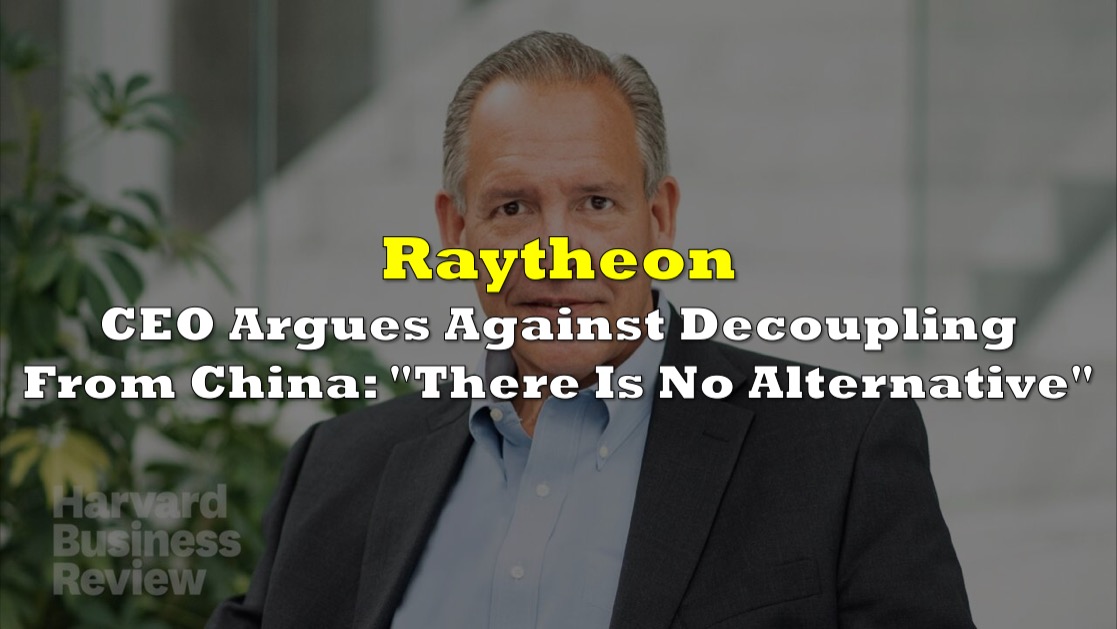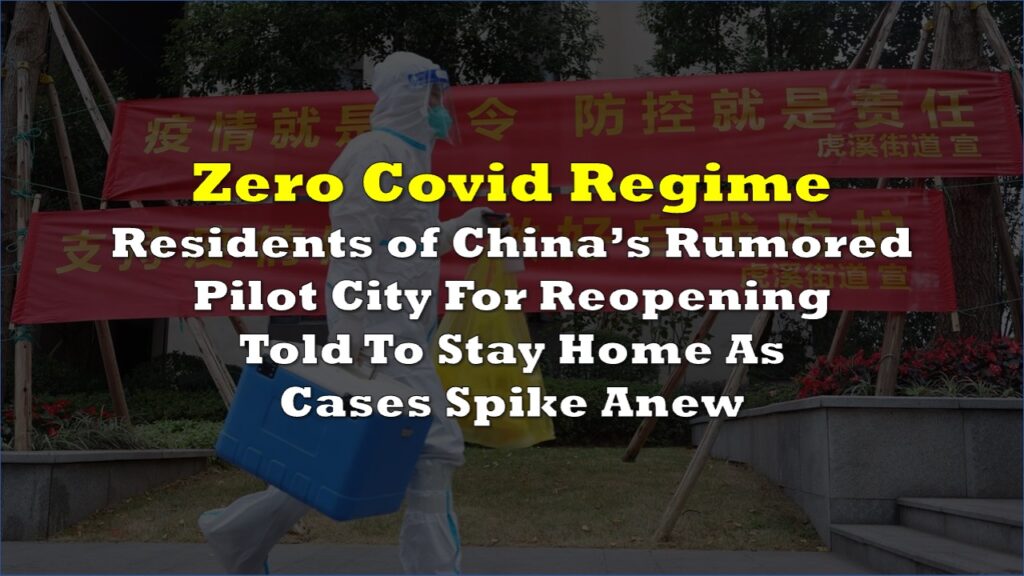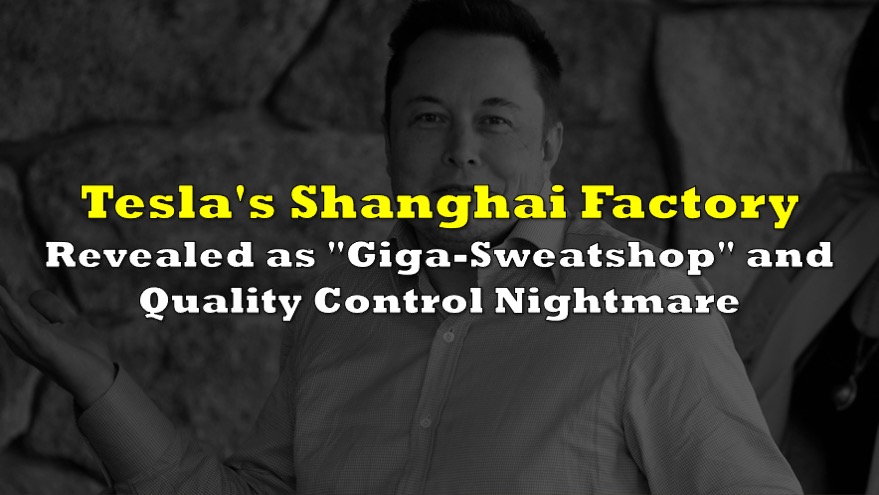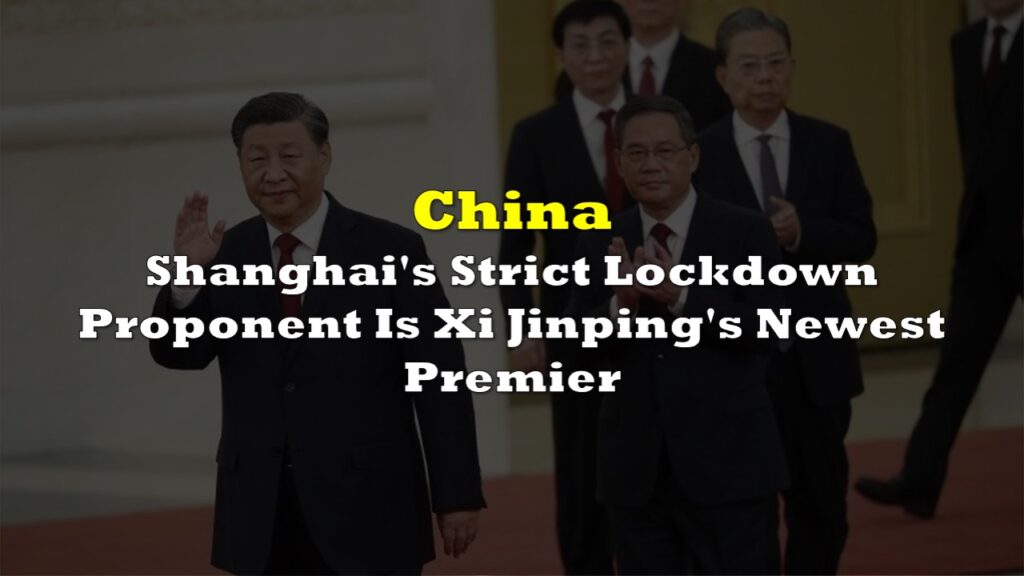Western manufacturers face the complex task of reducing risks associated with their operations in China, but completely severing ties with the country is an insurmountable challenge according to Greg Hayes, the CEO of Raytheon, one of the US’s major aerospace and defense companies.
In an interview with the Financial Times, Hayes emphasized that while de-risking is possible, full decoupling is not feasible for his company and others in the industry.
“We can de-risk but not decouple,” he said. “Think about the $500 billion of trade that goes from China to the US every year. More than 95% of rare earth materials or metals come from, or are processed in, China. There is no alternative.”
He further explained that if Raytheon were to withdraw from China, it would take many years to rebuild the necessary capabilities either domestically or in other friendly nations.
Greg Hayes, chief executive of Raytheon, said the company had “several thousand suppliers in China and decoupling . . . is impossible”.
— Matt Stoller (@matthewstoller) June 20, 2023
Insanity. Basically the outcome of a war with China will rest on whether China decides to supply us with ammunition.https://t.co/kk3EFdDeLg
The remarks by Hayes underscore the mounting challenges faced by western manufacturers amidst the escalating tensions between China, the United States, and its allies. Raytheon itself has experienced the impact of Beijing’s sanctions, as the company, along with defense peer Lockheed Martin, faced restrictions due to their supply of weapons to Taiwan. Although the sanctions have had limited commercial implications since military equipment sales to China were already prohibited, Raytheon maintains a significant commercial aerospace presence in China through its subsidiaries.
To mitigate risks, Raytheon is actively exploring alternative sources for critical components while acknowledging the difficulty of completely divesting from China. The company is in the process of de-risking its supply chain by establishing secondary sources for essential components.
“We are looking at de-risking, to take some of the most critical components and have second sources but we are not in a position to pull out of China the way we did out of Russia,” said the Raytheon chief.
Hayes highlighted that Raytheon’s recent rebranding as RTX aims to provide a clearer distinction between its commercial aerospace businesses and its defense activities, which will continue under the Raytheon brand.
If this is true then the US Government should seriously reevaluate awarding any further contracts to Raytheon and examine the possibility of cancelling outstanding ones, then shifting them to other firms. https://t.co/orLlGhoGkh
— Patrick Fox (@RealCynicalFox) June 21, 2023
Despite ongoing challenges such as inflation and strained supply chains, Hayes assured investors that Raytheon remains committed to achieving its target of $9 billion in free cash flow by 2025.
Pratt & Whitney, a subsidiary of Raytheon, has been facing supply challenges in fulfilling engine orders for Airbus while also meeting the demand for spare parts. To address these issues, Raytheon is expanding capacity in its supply chain and maintenance operations, including the opening of a new turbine blade factory in North Carolina.
On the defense side, Raytheon, alongside Lockheed Martin, has experienced production delays due to supply chain issues with rocket motors. Capacity constraints at the rocket motor producer Aerojet Rocketdyne have contributed to quality issues, labor shortages, and material shortages. However, the recent injection of government funding into Aerojet Rocketdyne aims to alleviate these challenges and facilitate expansion.
Information for this briefing was found via the Financial Times and the sources mentioned. The author has no securities or affiliations related to this organization. Not a recommendation to buy or sell. Always do additional research and consult a professional before purchasing a security. The author holds no licenses.









The West Needs To Level The Playing Field To Compete With China
Access to the raw materials of the new green economy is increasingly a high-stakes chess...